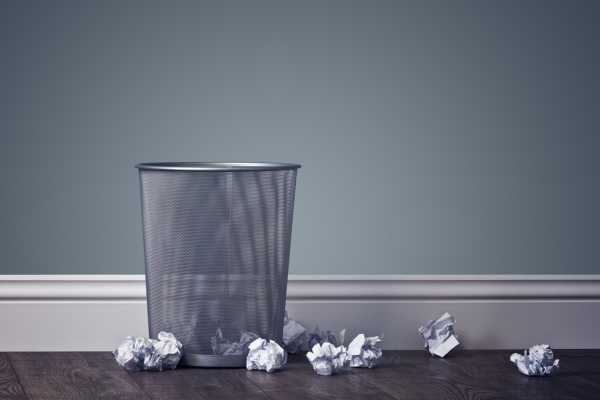
For the past week, when I have arrived home from work, my wife has said, “I’ve got the tennis on TV”. It’s a warning to me that she is watching the latest from Wimbledon, and I should be prepared for some annoyance. Tennis is unlike most other sports in that its scoring system makes it easier for someone to win due to their opponent’s mistakes.
Yes, I know that all sports players benefit from the mistakes of others. In football, though, you are not given a goal because the other side makes an error. You might get a penalty, but not something on your scoresheet. However, in tennis, if your opponent makes a mistake, you get a point. You’ve done nothing but stand still; they hit the ball out of the court, and you get the benefit. I get annoyed with tennis because somebody can win a match without doing anything other than seeing the other player make a mistake.
To be a leading tennis player, all you need to do – other than being wonderfully talented and supremely fit – is to make fewer mistakes than your opposing player. The same is true in business. Your company does not necessarily need to do brilliantly; it just has to make fewer errors than your direct rivals. Businesses are often remembered for their mistakes, rather than for what they do well.
You can see that in the current discussion about the former TV presenter, Greg Wallace. He was the much-admired presenter of Masterchef who used to drop his trousers in front of female colleagues to reveal he had no underwear. He has subsequently explained his behaviour on autism, something that experts in the area find both baffling and troubling. Now, though, we discover that five years before this issue was made public towards the end of 2024, BBC bosses had told Mr Wallace that unless his behaviour changed, he would be sacked. His behaviour did not change, but he was not sacked. Clearly, those BBC executives made a mistake, and this error brings back to our memory previous errors with wayward presenters, such as Jimmy Savile, Huw Edwards, and Rolf Harris. It is as though the BBC seems not to have learned from its mistakes, and that’s why it faces so much criticism.
However, before we start BBC-bashing, it’s essential to realise that most organisations behave like the BBC. Because mistakes are perceived as negative, bosses tend to focus on simple tasks as they are less prone to error. This just opens up the gap for mistakes to be made when something is more complex. It’s the same as playing tennis. But the best tennis players learn from their mistakes. It does not look like the BBC does this.
Now, I am sure we are all familiar with the story of Edison and his light bulb. According to the story, he took 10,000 attempts to produce the first commercial light bulb. The Smithsonian Magazine reports Edison as saying, “I have not failed 10,000 times—I’ve successfully found 10,000 ways that will not work.” He saw mistakes as good, as successes.
Society, however, views mistakes as negative. It turns out, for instance, that Law Schools deter students from making mistakes, instead seeking precision and accuracy at all times. This means there is limited opportunity for those trainee lawyers to learn. The same principle probably applies to medical education. After all, you don’t want your doctor making a mistake, do you? However, it is possible that, as they are discouraged from learning from mistakes, they may still make errors. Last year, for instance, the NHS paid out £2.8bn in medical negligence claims. That’s taxpayers’ money, of course. Businesses also pay out billions each year in compensation claims for mistakes.
Worse still, the mistakes businesses make are the things they are remembered for. News emerging from India is that the recent airline crash that killed 260 people appears to be due to the engines being mistakenly switched off. For years to come, Air India will be remembered for this one mistake, not for the billions of miles of successful air travel it has provided to millions of happy customers.
Similarly, the BBC will forever be remembered for the mistakes made around stars like Greg Wallace and Jimmy Savile, rather than the superb entertainment and increased knowledge it has provided to billions of people worldwide for more years than any other broadcaster.
Meanwhile, in the world of Wimbledon coverage, negativity surrounding Novak Djokovic has begun. He lost his semi-final match yesterday, and headlines today say he is “ailing” or “hindered”. How quickly people forget that he has been ranked the World Number One tennis player for over eight years in a row. Now, though, it’s his mistakes that matter, it would seem.
Look, we all make mistakes. Indeed, it might have been a mistake for me to write this article. But if we continue to perceive mistakes as negative, we fall into a trap of being unable to learn. Businesses need to embrace mistakes, rather than trying to avoid them. We can’t eliminate human error, but we can create environments that help reduce it. Perhaps it starts with something as simple as peppermint tea. Research at Northumbria University shows that drinking peppermint tea improves cognitive performance, which is precisely what you need to avoid errors. Perhaps Wimbledon players should drink peppermint tea rather than energy-infused water?



